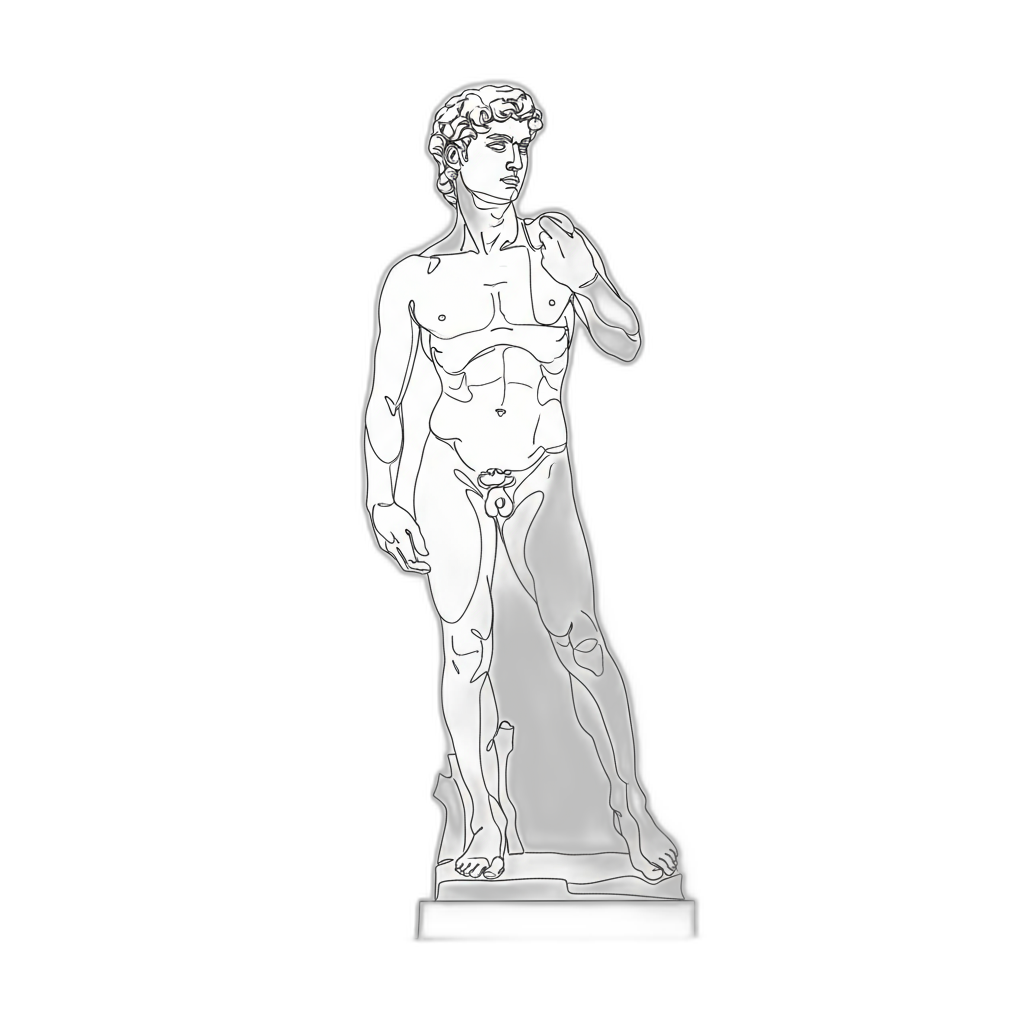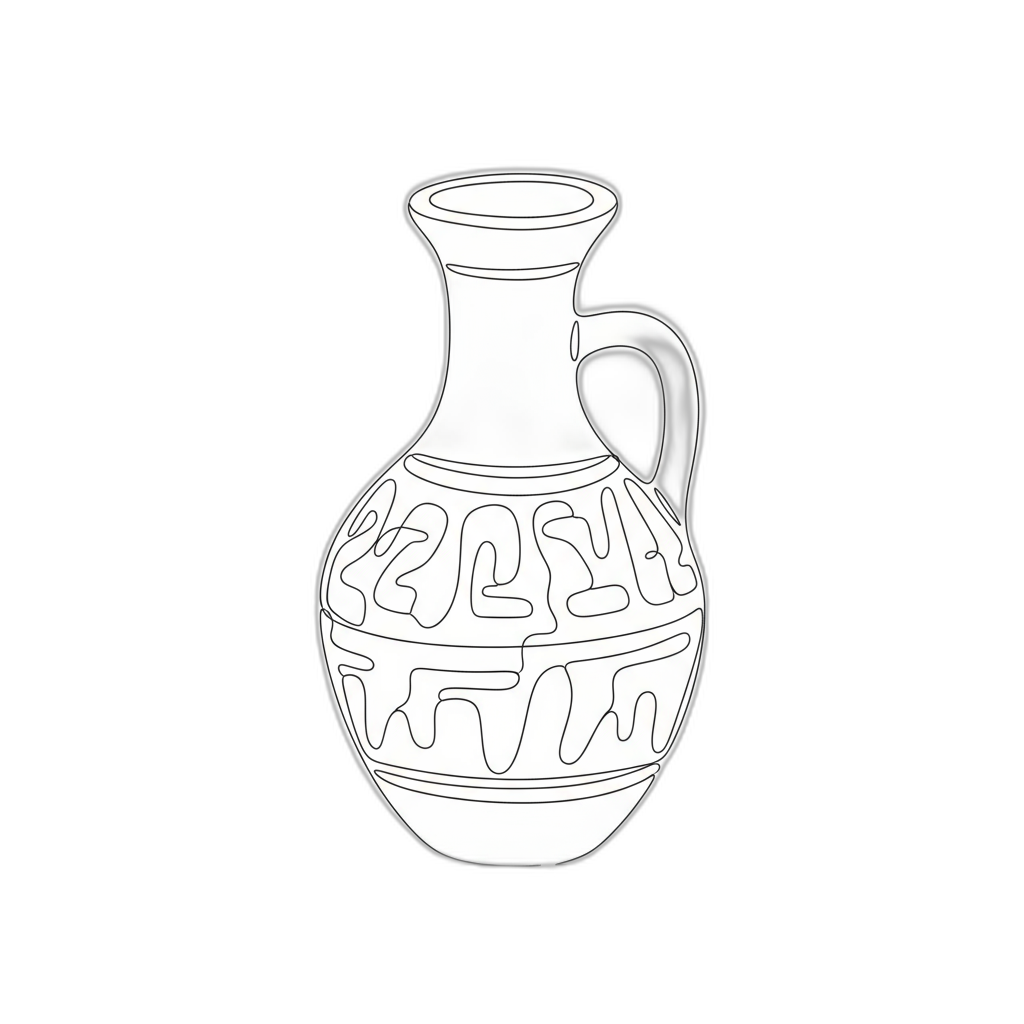






5-Star Service, Trusted & Loved by Hundreds
Your Appraiser Search Ends Here
Your Appraiser Search Ends Here
.avif)

Nationwide Coverage – Appraisals Anywhere in the US

Get it done Onsite or Online

Any Asset, Covered

Defensible for Any Purpose
Frequently Asked
Questions
No Frequently Asked Questions Found.
At its core, Medicaid planning involves careful asset management and strategic financial positioning. The primary objectives include qualifying for Medicaid benefits, protecting accumulated wealth, and ensuring access to necessary medical and long-term care services without exhausting personal resources.
The process encompasses several critical components. Asset protection stands as a fundamental strategy, involving careful evaluation and potential restructuring of savings, real estate, and investments to align with Medicaid's complex eligibility guidelines. Income management is equally crucial, with techniques designed to optimize financial positioning while adhering to program regulations.
Estate planning plays a significant role in this approach, integrating Medicaid considerations with broader financial goals. This may involve creating specialized trusts, implementing targeted gifting strategies, or utilizing legal mechanisms that protect assets while maintaining program compliance.
Exempt assets represent another important aspect of Medicaid planning. Certain properties, such as primary residences and specific personal belongings, can be strategically preserved while navigating eligibility requirements. Understanding these nuanced exemptions can provide substantial financial protection.
Crisis planning emerges as a critical component for those facing unexpected long-term care needs. This approach focuses on rapid strategies to meet eligibility requirements and protect assets when immediate care becomes necessary.
Given the complexity of Medicaid regulations, professional guidance becomes invaluable. Experienced elder law attorneys and financial advisors can provide personalized strategies tailored to individual circumstances, ensuring comprehensive protection and maximizing potential benefits.
Ultimately, Medicaid planning represents a proactive approach to financial and healthcare security. By understanding and strategically navigating program guidelines, individuals can maintain financial dignity while accessing essential care services.
A comprehensive appraisal provides an objective and legally recognized assessment of asset values, which directly impacts Medicaid qualification. These professional evaluations establish fair market value for real estate, personal property, and other significant assets, offering a clear snapshot of an individual's financial landscape.
By obtaining a detailed appraisal, individuals can make informed decisions about asset management. The valuation helps identify potential strategies such as strategic asset transfers or spending plans that align with Medicaid's strict regulatory guidelines. This proactive approach enables applicants to optimize their financial positioning while maintaining compliance with program requirements.
During the Medicaid application process, accurate documentation becomes essential. A professional appraisal serves as authoritative evidence, supporting the applicant's financial representation and potentially expediting the review process. The detailed assessment helps Medicaid caseworkers quickly and confidently evaluate an individual's eligibility.
Furthermore, a professionally prepared appraisal creates a protective documentation layer. In scenarios where asset values might be challenged, the appraisal stands as an impartial, expert-verified record of an asset's worth. This documentation can prevent potential disputes and provide clarity during the complex Medicaid planning journey.
Ultimately, a strategic appraisal is more than a simple valuation—it's a comprehensive financial planning tool that empowers individuals to navigate Medicaid's intricate requirements with confidence and precision.
An artwork appraisal represents a comprehensive professional evaluation that precisely determines the monetary and historical value of an art piece. This meticulous process involves expert assessment of multiple intricate factors that collectively influence an artwork's market worth and significance.
Professional art appraisers employ a sophisticated methodology that examines critical elements such as the artwork's provenance, authenticity, physical condition, current market dynamics, and the artist's reputation. Each of these components plays a crucial role in establishing an accurate and defensible valuation.
The evaluation goes far beyond a simple price assessment. Appraisers conduct detailed investigations that may include forensic analysis of materials, historical research into the artwork's origins, and careful examination of minute details that can substantiate or challenge the piece's perceived value. They leverage extensive knowledge of artistic styles, market trends, and collector interests to provide a nuanced understanding of an artwork's worth.
Different stakeholders rely on artwork appraisals for diverse purposes, including insurance documentation, estate planning, potential sale transactions, and tax compliance. The appraisal serves as an authoritative document that provides clarity and confidence for collectors, institutions, and potential buyers.
The complexity of art valuation requires a sophisticated approach that balances objective analysis with deep understanding of artistic and market contexts. A comprehensive appraisal not only quantifies monetary value but also captures the intrinsic cultural and historical significance of the artwork.
Online artwork appraisals have become increasingly sophisticated, offering art owners a convenient and comprehensive method to determine the value of their pieces. The process typically begins with submitting high-resolution photographs that capture essential details of the artwork. Professional appraisers carefully analyze these images, examining critical aspects such as condition, artistic technique, and distinctive characteristics.
Beyond visual documentation, appraisers collect contextual information through digital communication channels. Owners provide supplemental details about the artwork's provenance, artist background, and historical significance, which help create a more nuanced valuation. This collaborative approach allows for a thorough assessment without the constraints of physical proximity.
Live video consultations have emerged as an innovative component of online art appraisals. Using platforms like Zoom or Google Meet, appraisers can engage directly with clients, rotating artwork, examining specific details, and conducting real-time discussions. This interactive method bridges the gap between digital and in-person assessment, enabling a more dynamic and comprehensive evaluation.
The digital appraisal process offers substantial benefits, including accessibility for individuals in remote locations, flexibility for busy clients, and reduced logistical complexities. Professional appraisers maintain rigorous standards, ensuring that online evaluations are as meticulous and credible as traditional in-person assessments.
Modern technology has transformed artwork appraisals, creating a streamlined, efficient approach that meets the evolving needs of art collectors and owners. By leveraging digital tools and professional expertise, online appraisals provide accurate, comprehensive valuations with unprecedented convenience.
Artwork appraisers are specialized professionals who meticulously assess the value of diverse art forms. Their expertise spans multiple domains, each requiring unique skills and deep knowledge of artistic markets, historical context, and aesthetic evaluation.
Fine art appraisers concentrate on traditional art mediums like paintings, sculptures, and drawings. These experts possess comprehensive understanding of art movements and market dynamics, often developing profound specialization in specific periods such as Impressionism or Contemporary art.
Decorative art appraisers evaluate functional artistic items including furniture, ceramics, glassware, and textiles. Their assessments consider craftsmanship, material quality, historical significance, and provenance, making them invaluable to collectors and antique dealers seeking precise valuations.
Digital art appraisers represent an emerging professional category addressing the rapidly evolving technological art landscape. They specialize in evaluating digital creations, graphic designs, digital paintings, and emerging formats like NFTs, reflecting the dynamic nature of contemporary artistic expression.
Antique appraisers focus on artworks exceeding 100 years in age, conducting thorough examinations that extend beyond aesthetic value. They scrutinize historical importance, authenticity, and originality, distinguishing genuine historical pieces from reproductions and potential forgeries.
Specialty appraisers develop expertise in distinct artistic niches, concentrating on specific artists, regional styles, or unique media such as photography or limited edition prints. Their targeted knowledge enables nuanced, precise valuations within specialized artistic domains.
Institutional appraisers employed by museums, galleries, and cultural organizations perform critical valuation services for collections, exhibitions, and acquisitions. Operating under rigorous ethical standards, they provide essential assessments for insurance, donation, estate planning, and cultural preservation purposes.
Artworks transcend mere visual appeal, representing significant financial and emotional investments. Professional appraisals provide critical insights that extend far beyond simple price determination, serving multiple strategic purposes for art owners.
Insurance protection stands as a primary motivation for artwork appraisals. Without accurate documentation, collectors risk inadequate compensation during loss, theft, or damage scenarios. Precise valuations enable insurance companies to establish appropriate coverage, ensuring financial security for valuable pieces.
Estate planning represents another crucial context for art appraisals. When transferring assets between generations, comprehensive valuations help establish fair market values, potentially mitigating potential tax complications and familial disputes. Executors and heirs gain clarity about the financial landscape of inherited artwork collections.
Charitable donations also benefit from professional appraisals. For artwork valued over specific thresholds, formal assessments become essential for claiming tax deductions. These documentations provide nonprofits with transparent understanding of donated asset values while offering potential tax advantages to donors.
Preparing for potential sales requires nuanced market understanding. Appraisals illuminate current market trends, helping owners set competitive pricing strategies. Whether considering auction placement or private sale, comprehensive evaluations empower informed decision-making.
Investment portfolios increasingly recognize art as a valuable asset class. Professional appraisals help collectors assess artwork's financial potential, tracking appreciation and understanding long-term value trajectories. These insights support sophisticated wealth management approaches.
Authenticity verification represents an often-overlooked yet critical appraisal benefit. Reputable assessments not only determine monetary value but also confirm artwork provenance, protecting collectors from potential fraud and enhancing piece legitimacy.
Ultimately, artwork appraisals represent more than financial transactions—they are comprehensive explorations of cultural, historical, and monetary significance. By bridging emotional attachment and strategic financial planning, professional evaluations offer collectors comprehensive perspectives on their artistic investments.
Why Does Artwork Matter in Medicaid Planning?
Artwork plays a critical role in Medicaid planning, significantly impacting financial strategies and potential healthcare service eligibility. Understanding its nuanced value helps individuals navigate complex asset preservation challenges.
Key Considerations of Artwork in Medicaid Planning
Asset Valuation and Eligibility
- Artworks are classified as tangible assets that directly influence Medicaid qualification
- High-value pieces can potentially disqualify applicants from receiving benefits
- Professional appraisals provide precise insight into asset limits and potential financial implications
Emotional and Financial Complexity
- Artwork often represents personal heritage and family history
- Emotional attachments can complicate financial decision-making
- Balancing sentimental value with financial necessities requires strategic planning
Market Value and Appreciation Potential
- Some artwork collections may appreciate significantly over time
- Regular professional appraisals help track potential asset growth
- Understanding current market value aids in making informed financial decisions
Proactive Estate Planning Strategies
- Comprehensive estate planning requires thorough artwork assessment
- Professional appraisals help structure estates aligned with personal goals
- Demonstrates fiscal responsibility and forward-thinking financial management
By carefully evaluating artwork's financial and personal significance, individuals can develop nuanced Medicaid planning strategies that respect both economic constraints and personal legacy.
Navigating Asset Valuation: A Strategic Guide
Strategic Asset Valuation for Medicaid Planning
Navigating Medicaid planning requires a comprehensive understanding of asset valuation, with artwork representing a critical component of personal wealth assessment. This guide provides strategic insights into effectively appraising artwork for Medicaid eligibility purposes.
Why Artwork Valuation Matters
Artwork serves as a significant financial asset with complex valuation considerations:
- Directly impacts Medicaid eligibility determinations
- Plays a crucial role in comprehensive estate planning
- Influences potential tax implications
- Requires specialized expertise to accurately assess
Key Considerations for Art Appraisal
- Professional Expertise
- Seek certified appraisers with specialized art market knowledge
- Choose professionals accredited by recognized organizations
- Ensure comprehensive understanding of various art forms
- Comprehensive Valuation Methodology
- Conduct thorough market research
- Analyze recent auction results
- Compare similar artwork sales
- Consider historical significance and provenance
Critical Documentation Requirements
A comprehensive appraisal report should include:
- Appraiser's professional credentials
- Detailed valuation methodology
- Comprehensive market analysis
- High-quality artwork photographs
- Current market value assessment
Ongoing Valuation Management
Art markets are dynamic, requiring proactive management:
- Conduct periodic reappraisals
- Track market trends
- Maintain meticulous financial records
- Update documentation regularly
Strategic artwork valuation is essential for comprehensive Medicaid planning, providing clarity and confidence in asset management decisions.
What Types of Artwork Impact Medicaid Eligibility?
When considering Medicaid eligibility, understanding how different types of artwork may impact an individual's financial standing is crucial. Artwork is often classified as an asset, and its value can significantly affect qualification for Medicaid support.
Types of Artwork Affecting Medicaid Eligibility
Fine Art
- Encompasses paintings, sculptures, and high-value pieces by recognized artists
- Market value fluctuates based on demand, artist reputation, and market trends
- A well-appraised piece can comprise a substantial portion of an applicant's asset limit
Collectible Artwork
- Includes vintage posters, rare prints, and limited edition pieces
- Can appreciate over time, creating potential asset value
- Requires thorough assessment for Medicaid qualification
Emerging Art Forms
- Photography and digital artwork vary significantly in value
- Value depends on artist reputation and piece uniqueness
- Potential to impact overall asset calculations
Home Decorative Artwork
- Includes framed prints, wall sculptures, and decorative ceramics
- May seem insignificant individually
- Can collectively contribute to asset totals
Key Considerations for Artwork and Medicaid Eligibility
Professional Appraisal
Obtaining a certified professional appraisal is critical to:
- Accurately determine current market value
- Ensure compliance with Medicaid asset regulations
- Provide a clear understanding of artwork's financial impact
Asset Management Strategies
Potential approaches to mitigate artwork's impact on Medicaid eligibility:
- Gifting artwork to family members or institutions
- Transferring assets into specialized trusts
- Consulting with financial and legal professionals for guidance
Understanding the nuanced relationship between artwork and Medicaid eligibility empowers individuals to make informed decisions that align with their long-term care needs and financial planning.
The Art of Determining Fair Market Value
Determining the fair market value of artwork is a nuanced process that requires expertise and a comprehensive understanding of both the art market and the specific piece being appraised. Fair market value represents the price at which an asset would sell in an open market between a willing buyer and a willing seller.
Key Factors in Artwork Valuation
Appraisers employ a multifaceted approach to assess artwork value, considering several critical elements:
1. Artist Reputation
- The historical significance and market recognition of the artist
- Established artists typically command higher prices
- Career trajectory and critical acclaim impact valuation
2. Provenance
- Comprehensive documentation of artwork ownership history
- Previous exhibitions and notable ownership enhance value
- Detailed sales records and exhibition documentation are crucial
3. Condition and Authenticity
- Meticulous evaluation of the artwork's physical condition
- Assessment of any damage, restoration, or alterations
- Verification of authenticity to prevent value depreciation
- Professional conservation and restoration impact can be significant
4. Market Dynamics
- Continuous monitoring of current art market trends
- Understanding collector preferences and emerging interests
- Tracking gallery exhibitions and auction performances
- Recognizing cyclical market fluctuations
5. Comparative Sales Analysis
- Comprehensive review of similar artwork sales
- Benchmarking against recent auction and dealer transactions
- Contextualizing the artwork within its specific market segment
In Medicaid planning, precise artwork appraisal becomes critically important. Accurate valuation directly influences asset assessment and potential qualification for assistance programs. By understanding these intricate valuation principles, individuals can make informed decisions about their artwork, ensuring fair market representation in financial planning and potential liquidation scenarios.
Critical Factors That Influence Artwork Valuation
Critical Factors Influencing Artwork Valuation
When navigating artwork appraisal, especially for Medicaid planning, understanding key valuation factors is essential. Several critical elements significantly impact an artwork's overall worth and market value.
Key Valuation Considerations
- Artist Reputation
The artist's market standing directly influences artwork value. Established artists with strong historical significance or a robust market presence typically command higher prices. While emerging artists can also hold value, their pricing tends to be more unpredictable.
- Provenance
An artwork's ownership history, known as provenance, is crucial in determining its value. A well-documented lineage tracing through notable collections or prestigious exhibitions can substantially enhance market worth. Conversely, incomplete documentation may raise authenticity concerns and diminish desirability.
- Condition and Restoration
Physical condition serves as a critical valuation factor. Experts meticulously assess:
- Existing damage (tears, fading)
- Quality of previous restoration attempts
- Overall preservation state
Improper restoration can significantly decrease an artwork's value, making professional assessment paramount.
- Market Demand
Current market trends and collector interests dynamically influence artwork pricing. Economic conditions and evolving artistic preferences can cause substantial value fluctuations. A resurgence of interest in a specific art movement, for instance, may dramatically increase values for related works.
- Cultural Significance
Artworks embodying cultural or historical importance often possess enhanced intrinsic value. Factors contributing to cultural significance include:
- Influence on art history
- Representation of significant societal themes
- Innovative artistic approaches
- Size and Medium
An artwork's physical characteristics play a notable role in valuation. Larger pieces or those created using rare, premium materials typically command higher prices compared to smaller or more conventionally produced works.
By comprehensively understanding these driving factors, individuals can develop a nuanced perspective on artwork valuation, particularly within the context of Medicaid planning and comprehensive asset assessment.
How Can Artwork Appraisals Protect Your Estate?
Artwork appraisals are a strategic tool in comprehensive estate planning, particularly within Medicaid planning frameworks. These professional evaluations provide critical insights that protect your financial legacy and ensure compliance with complex regulatory requirements.
Key Benefits of Professional Artwork Appraisals
- Precise Asset Valuation
A professional artwork appraisal delivers an objective, comprehensive assessment of your art collection's fair market value. This valuation is fundamental in understanding how these assets integrate into your overall financial strategy and potential Medicaid eligibility.
- Strategic Asset Management
Accurate appraisals enable strategic positioning of artwork within Medicaid asset limits. By understanding exact valuations, you can structure your estate to maximize protection while adhering to regulatory guidelines.
- Comprehensive Documentation
Medicaid applications require meticulous asset documentation. Professional appraisals provide credible, detailed evidence of artwork value, ensuring transparency and accuracy in your financial representation.
Additional Protective Dimensions
- Family Planning
Clear, professional artwork valuations can mitigate potential inheritance disputes by providing an unbiased basis for equitable asset distribution.
- Tax Strategy
Precise artwork appraisals are instrumental in understanding potential tax implications, potentially offering opportunities for strategic tax planning within your estate.
Long-Term Estate Protection
Professional artwork appraisals transcend mere monetary assessment. They represent a sophisticated approach to preserving your financial legacy, providing clarity, compliance, and strategic insight throughout the complex landscape of estate and Medicaid planning.
Selecting a Qualified Artwork Appraiser: What You Need to Know
When selecting a qualified artwork appraiser for Medicaid planning purposes, understanding the nuanced aspects of the appraisal process is crucial. The value of artwork can significantly influence financial assessments and Medicaid eligibility, making it essential to engage the right expert.
Key Considerations for Selecting an Artwork Appraiser
Professional Experience and Credentials
- Look for appraisers with extensive experience in art valuation
- Verify membership in recognized professional organizations:
- Appraisers Association of America
- American Society of Appraisers
- Prioritize professionals who have:
- Completed rigorous training
- Demonstrated expertise across various artwork types
Specialized Expertise
Art encompasses diverse mediums, styles, and genres. Select an appraiser who specializes in your specific artwork type, such as:
- Paintings
- Sculptures
- Prints
- Contemporary art
Specialized appraisers are more attuned to current market trends and value fluctuations within their specific niche.
Appraisal Methodology and Professional Standards
- Ensure the appraiser follows Uniform Standards of Professional Appraisal Practice (USPAP)
- Verify their methodology includes:
- Comprehensive research on comparable sales
- Analysis of current market trends
- Evaluation of unique artwork characteristics
Communication and Transparency
A qualified appraiser should:
- Provide a detailed, thorough report
- Clearly explain valuation methodology
- Be willing to discuss findings and rationale
- Build trust through open communication
Due Diligence
Before making a final selection:
- Request and check client references
- Read professional reviews
- Assess the appraiser's reputation for:
- Professionalism
- Reliability
- Client satisfaction
By carefully selecting a qualified artwork appraiser, you can ensure an accurate assessment that reflects the true value of your assets, supporting your Medicaid planning strategy.
Overcoming Challenges in Artwork Valuation
Understanding the Complexity of Artwork Valuation
Artwork appraisal presents unique challenges, especially when integrated with Medicaid planning. The process requires a nuanced approach that goes beyond traditional asset valuation methods.
Key Challenges in Art Valuation
- Subjective Nature of Art: Unlike tangible assets, artwork value is influenced by multiple dynamic factors:
- Artist's reputation
- Current market trends
- Piece uniqueness
- Historical significance
- Pricing Inconsistencies: Art lacks standardized pricing, creating significant valuation uncertainties
- No universal pricing guide
- Potential discrepancies between appraisals
- Reliance on expert market knowledge
Critical Valuation Considerations
- Provenance Verification
The artwork's ownership history and authenticity are paramount in determining true market value. This process often requires:
- Extensive research
- Documentation authentication
- Expert historical analysis
- Emotional Bias Mitigation
Personal attachment can significantly distort perceived artwork value. Professional appraisers help:
- Provide objective assessments
- Separate sentimental value from market value
- Ensure accurate Medicaid planning documentation
Strategies for Accurate Valuation
To navigate these challenges effectively, individuals should:
- Consult certified art appraisal professionals
- Maintain comprehensive documentation
- Understand current market trends
- Regularly update artwork valuations
By recognizing and addressing these complex valuation challenges, individuals can achieve a more precise and reliable assessment of their artwork for Medicaid planning purposes.
Medicaid Compliance: Ensuring Your Artwork Appraisal Meets Regulatory Standards
Navigating Medicaid compliance for artwork valuation requires a strategic and meticulous approach. Understanding the complex regulatory landscape is essential to ensuring your artwork appraisal meets all necessary standards.
Key Compliance Considerations
- Professional Expertise: Select an appraiser with specialized credentials and deep knowledge of both art market dynamics and Medicaid regulations
- Comprehensive Documentation: Maintain detailed records that validate artwork provenance and value
- Systematic Valuation Methods: Employ rigorous appraisal techniques aligned with IRS and industry guidelines
Essential Appraisal Report Components
- Precise artwork description
- Detailed valuation methodology
- Comparable sales analysis
- Supporting financial documentation
Ongoing Compliance Strategies
Proactively managing your artwork valuation involves:
- Periodic professional re-evaluations
- Tracking market condition changes
- Maintaining updated documentation
- Anticipating potential Medicaid review scrutiny
Critical Compliance Recommendations
A strategic approach to artwork appraisal for Medicaid planning requires diligence, expertise, and meticulous documentation. By working with qualified professionals and maintaining comprehensive records, you can confidently navigate the complex regulatory landscape.
Which Appraisal Method Is Right for Your Art?
Choosing the Right Appraisal Method for Artwork
When determining the value of art for Medicaid planning, selecting the appropriate appraisal method is critical. The chosen method directly influences both the appraised value and potential implications for Medicaid eligibility and asset transfer strategies.
Key Appraisal Methods for Art Valuation
- Market Approach
The most common method for art valuation, the market approach evaluates artwork based on recent sales of comparable pieces. Appraisers analyze:
- Auction results
- Gallery pricing
- Private sale transactions
This approach works exceptionally well for modern and contemporary artworks with extensive market data.
- Income Approach
Less frequently used for artwork, this method examines potential revenue generation, including:
- Exhibition earnings
- Leasing potential
- Royalty streams
Particularly relevant for commercial or income-producing artworks.
- Cost Approach
This method calculates value by considering:
- Material costs
- Labor expenses
- Overhead investments
Most applicable to newly created works or unique installations, though often less accurate in reflecting true market value.
- Expert Opinion Method
Relies on specialized appraisers who provide comprehensive valuation by examining:
- Artwork authenticity
- Historical significance
- Provenance details
Offers nuanced insights beyond standard valuation techniques.
Factors Influencing Appraisal Method Selection
Choosing the most appropriate appraisal method requires careful consideration of:
- Artwork type and classification
- Current market demand
- Specific purpose of the appraisal
- Unique characteristics of the artwork
Working with a qualified, experienced appraiser ensures a comprehensive and accurate valuation that meets Medicaid planning requirements and protects your artistic assets.
Your Top Questions About Artwork Appraisal Answered
Understanding Artwork Appraisals for Medicaid Planning
Artwork appraisals are critical in Medicaid planning, providing a comprehensive and accurate valuation of art assets that can significantly impact benefit eligibility. Navigating this process requires careful consideration and expert insight.
What is an Artwork Appraisal?
An artwork appraisal is a professional evaluation that determines the precise monetary value of an art piece through a comprehensive analysis that includes:
- Artist's reputation and historical significance
- Current artwork condition
- Documented provenance
- Recent comparable sales data
- Market trends and artistic movements
Importance in Medicaid Planning
Medicaid eligibility hinges on strict asset limitations, making artwork appraisals crucial for several reasons:
- Accurately representing total asset value
- Determining potential impacts on benefit qualification
- Providing transparent financial documentation
- Helping applicants make informed financial decisions
Appraisal Frequency Recommendations
Art valuations are dynamic and subject to market fluctuations. Best practices suggest:
- Reassess artwork every 3-5 years
- Obtain a new appraisal after significant market changes
- Update valuation before major financial planning events
- Consider professional review if artwork condition changes
Selecting a Qualified Appraiser
Choosing the right professional is paramount. Key considerations include:
- Certification from recognized appraisal organizations
- Specialized expertise in fine art valuation
- Deep understanding of current market trends
- Comprehensive documentation and reporting skills
- Experience with Medicaid-related appraisals
By understanding these critical aspects of artwork appraisal, individuals can approach Medicaid planning with confidence and clarity, ensuring accurate representation of their art assets.
Maximizing Financial Security Through Accurate Artwork Appraisal
Artwork appraisal is a critical component of strategic Medicaid planning, offering individuals a comprehensive approach to managing their financial assets and potential healthcare benefits.
Key Considerations in Artwork Valuation for Medicaid Planning
A comprehensive artwork appraisal involves sophisticated evaluation of multiple critical factors that directly impact financial planning and potential Medicaid eligibility.
Essential Valuation Elements
- Market Dynamics: Comprehensive appraisals analyze current art market trends, providing insight into potential asset value fluctuations and economic influences
- Provenance Verification: Detailed examination of artwork's ownership history and authenticity, which critically determines financial and historical significance
- Condition Assessment: Thorough physical evaluation considering restoration status, preservation quality, and potential value-impacting damages
- Tax Strategy Implications: Precise valuations offer strategic advantages in estate planning and potential tax liability management
Strategic Benefits of Professional Artwork Appraisal
Professional artwork appraisal transcends simple monetary valuation, offering a strategic approach to financial planning that:
- Provides accurate asset documentation
- Supports informed decision-making
- Helps optimize potential Medicaid planning strategies
- Ensures comprehensive asset management
By prioritizing accurate and professional artwork appraisal, individuals can navigate complex financial landscapes with greater confidence and strategic insight. This proactive approach empowers individuals to make informed decisions about their assets and future healthcare planning.
View all Locations
BEST-IN-CLASS APPRAISERS, CREDENTIALED BY:
























.svg)








